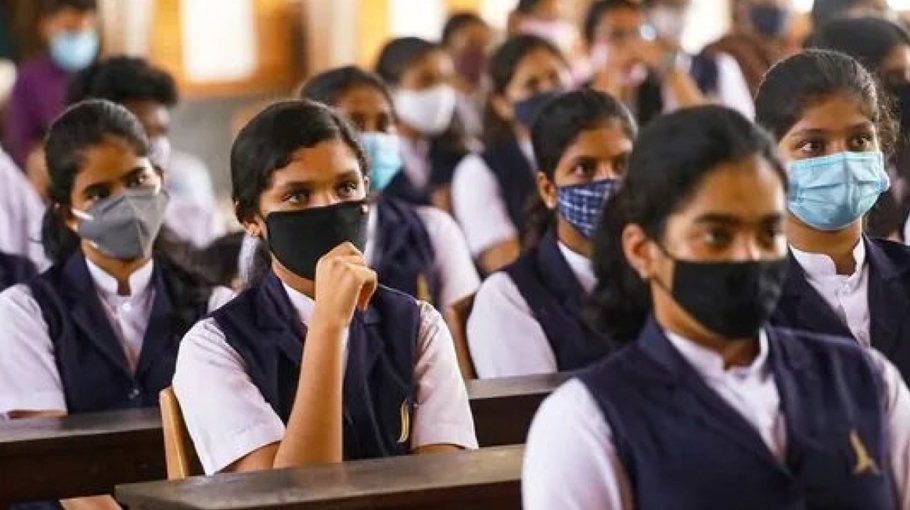India must reopen schools as Omicron cases fall
This is the best time to take a leap of faith and truly learn how to live with the virus

As I write this column, we are seeing the first signs of India’s third Covid wave ebbing. Over the last few weeks, there was a sharp spike in cases and much like other parts of the world which saw an Omicron wave, here too the decline appears to be much quicker than the prolonged Delta wave of 2021.
Mercifully, the number of intensive care (ICU) admissions have been low, so we did not see hospitals overwhelmed and people struggling to get oxygen like the nightmare of the previous wave. Which then begs the question: Are we ready to live with Covid? Or actually, since we don’t have much of a choice, how can we live with Covid for the foreseeable future?
These questions have become even more critical as the world struggles to figure out life beyond lockdowns. In the UK, Boris Johnson defied all calls for restrictions late last year as the Omicron wave started rising and refused to lockdown England. The restrictions that were imposed were basic — wearing masks indoors and on public transport. But even that has ended now. Schools were never closed and continue to function.
The UK example
The booster drive has picked up pace. While hospitalisations went up, the NHS was not overwhelmed like last time and it appears that Johnson’s risky gambit of keeping almost everything open may just have paid off. Many European countries did impose lockdowns and restrictions ahead of Christmas. They simply couldn’t take chances with a collapse of health care systems.
In India, there have been localised lockdowns, such as weekend curfews in Delhi and Mumbai, odd even rules for shops to remain open, restaurants only allowed 50% seating capacity and so on. Schools unfortunately have remained closed for most of the last two years.
And this perhaps is the best time to take a leap of faith and truly learn how to live with the virus. Medical experts are in forefront of saying lockdowns don’t work any longer and should be the absolute last resort to prevent hospitals from being overwhelmed.
Indeed, many doctors have pleaded with policymakers to look at death and hospitalisation numbers and not at actual active cases, to determine what to do. Most importantly, nearly all agree that it is time to send children back to school.
Psychological and physical impact
Ultimately, while we need to be cautious,
it’s time to stop fearing the coronavirus.
But none of this will matter if the world doesn’t
get its act together on vaccines
The psychological and physical impact of online classes and lack of interaction with their peers will have an effect on children for years to come. With precautions in place, many parents are now demanding offline classes be resumed.
Reports now say the centre’s health ministry is looking at how schools and colleges can resume safely and soon. For the rest of us, getting back to some semblance of a “normal” life will depend a lot on masks and basic precautions. We will probably have to wear masks in indoor and crowded settings for some years and its time to simply get used to it. For many of us it is now second nature, but a vast majority are still irresponsible. Your mask doesn’t just protect you, it protects everyone around you.
Let lockdowns be a thing of the past. Vaccine mandates should be the way of the future — for entry into restaurants, malls and cinemas and for travel. Getting vaccinated must remain a choice, but if you choose not to, then be prepared to be excluded from many activities which could put the lives of others at risk.
The new normal
A number of companies have adopted the “new normal” and are keeping a mix of working from home and work from the office. Several organisations like Twitter, Meta, Tata Steel, Spotify and more have decided to keep the “work from home” rule for the long term.
Some are asking employees to come in only a couple of days a week and scrapping the need for unnecessary travel for physical meetings as far as possible. Technology has made the impossible, possible.
Ultimately, while we need to be cautious, it’s time to stop fearing the coronavirus. But none of this will matter if the world doesn’t get its act together on vaccines. The World Health Organisation (WHO) has warned that while cases may be declining in the US and Europe, they are rising in less vaccinated parts of the world and unless we bridge the gap, this inequity could lead to the rise of “dangerous, new variants”.
Data shows that only about 62% of the world’s population has received one dose of a Covid vaccine. There is also a sharp divide between rich and poor nations. Only 10% of the population (that is vaccinated) has received one dose — in low income countries — while the number is 78% in high income and upper middle class countries. The fight against Covid will ultimately be won with vaccines — vaccines for all.
Nidhi Razdan is an award-winning journalist. She was the Executive Editor of NDTV. She has reported on Indian
politics and diplomacy.
Source: Gulf News




